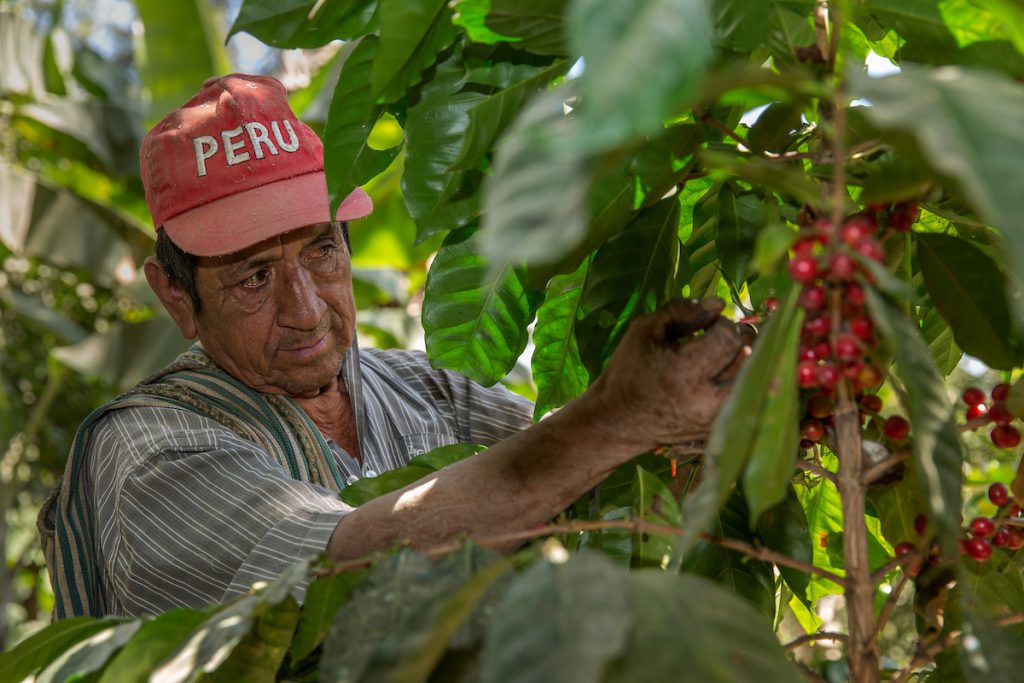It adds that commodities markets are creating a broken food system and a focus on driving up profits, whilst pushing down costs has made farming unsustainable for producers who are facing a double crisis of Climate Change and historically low prices for crops such as coffee, tea, and cocoa.
Globally, the livelihoods of millions of farmers and workers are at risk and in the Fairtrade system farmers are increasingly affected:
- A film, launched today for International Coffee Day, highlights a community of coffee farmers in northern Peru, who have been growing coffee for UK consumers for the past 25 years and are losing entire crops – each harvest – to diseases and pests caused by rising temperatures.
- In March 2019, Cyclone Idai caused catastrophic damage as heavy rains burst river banks and washed away Fairtrade sugar farmers’ crops and livestock in Malawi.
- Last summer in Kerala, 40% of farmers belonging to a Fairtrade co-operative suffered damage to their homes and land in devastating floods that left over 2 million people stranded in camps.
The Fairtrade Foundation, which this week celebrates the 25th anniversary of the iconic FAIRTRADE Mark, is launching ‘A Menu for Change’ and says there is an alternative to the current profit-driven world trade system that drives down costs and is unsustainable for both people and planet.
Michael Gidney, CEO Fairtrade Foundation, said:
‘Conventional trade exposes producers to huge risks because of price volatility in commodity markets. That, together with the impact of climate change on harvests is pushing millions of farmers and workers in the Global South further into poverty and debt.
‘We must tackle the scandal of our broken food system. This is not a warning about a future calamity; today in many communities around the world farmers cannot feed their families. This is an outrage in a world where obesity is on the increase. But it is also short-sighted: if farming doesn’t pay then producers will be forced to leave their farms to look for work. Then who will feed the 9bn in the world by 2050? Who will invest in adapting farming to climate change? Sooner or later, this affects us all and we need action now’.
The UN increasingly warns climate disasters are becoming more prevalent and developing countries are most at risk. Floods, droughts, changing rainfall patterns and rising temperatures are catastrophic for vulnerable farming communities with little social protection.
For those able to sell to the Fairtrade market, this is the only means they have to protect their communities and invest in sustainable farming through the stability of the Fairtrade Minimum Price (or the market price if higher) and additional investment under the Fairtrade Premium.
This weekend 4-7 October thousands of supporters and businesses across the UK are showing their support for farmers and workers as they celebrate 25 years of the FAIRTRADE Mark and the impact it has had for communities around the world.
For more information about how to get involved visit the Fairtrade website, how to get involved.
